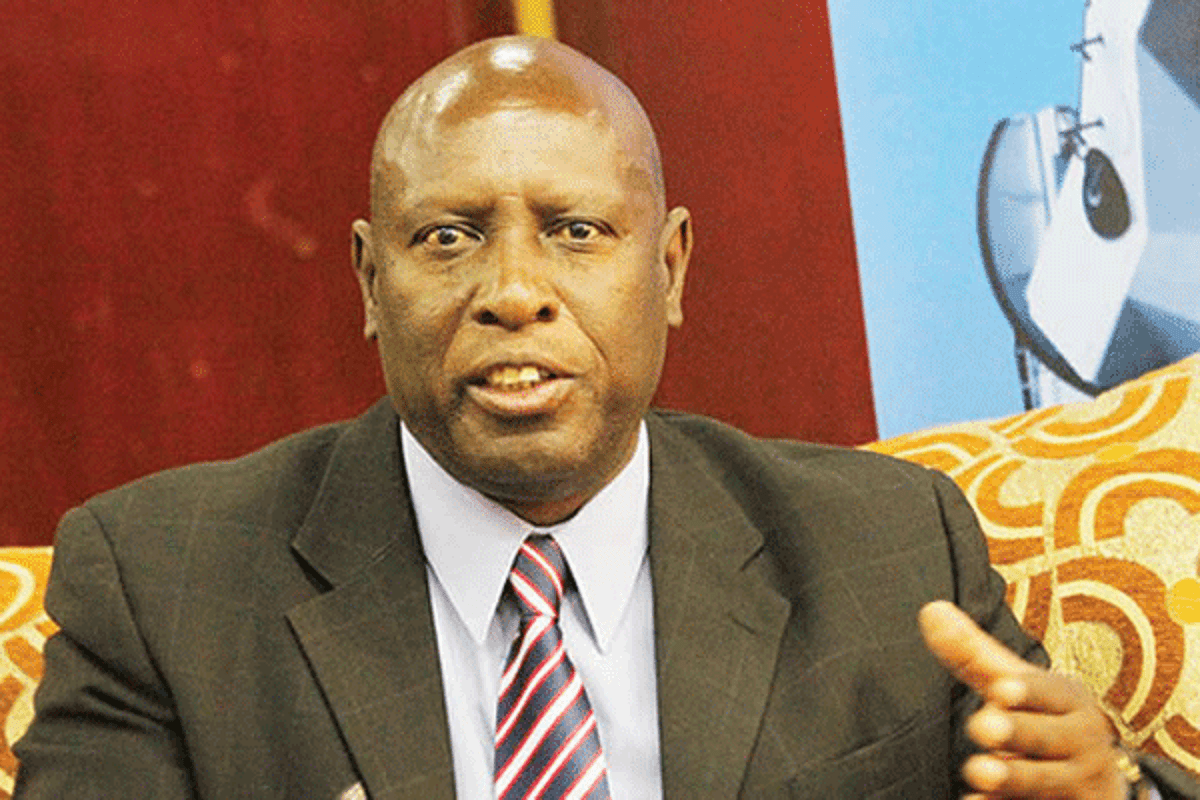FORMER Energy minister Samuel Undenge, pictured,’s bid to overturn his conviction and sentence for corruption hit a brickwall yesterday after High Court judges, Justices Joseph Musakwa and Philda Muzofa, dismissed his appeal.
Undege was convicted of criminal abuse of office in 2018 and sentenced in June 2020 to four years’ imprisonment with 18 months suspended for five years on condition of good behaviour, leaving him to effectively serve two-and-a-half years in prison.
He was later released from jail through a presidential pardon.
Undenge had lodged an appeal against the conviction and sentencing, arguing that the court had erred in finding him guilty.
But justices Musakwa and Muzofa dismissed the notion that Undenge was a victim of political persecution.
“There are two issues that arise from the appellant’s appeal. The first issue that can be easily disposed of relates to his defence that he was the victim of political machinations following the change of government in 2017. As correctly noted by the trial court, the conduct giving rise to the charge occurred in 2016. I do not want to think that the appellant’s real defence is that of selective prosecution. If that is so, then it is a tacit acknowledgment of wrongdoing save that his gripe is that he fell in the wrong political camp when the decision to prosecute him was made,” read the judgment.
Regarding the sentence, the trial court gave detailed reasons and justified its decision to impose an effective custodial term.
“I do not think that the crime of abuse of office should be viewed less seriously and therefore attracts less punishment simply on account that the appellant may not have benefited directly from the commission of the crime. The seriousness of the crime arises from undermining public confidence in public administration and the subversion of corporate governance.
“ZPC is a subsidiary of Zimbabwe Electricity Supply Authority, a State-owned entity. It is subject to procurement regulations like any other public entity. This means that ordinarily before ZPC engaged Fruitful Communications; it should have either listed other service providers or invited formal bids, depending on the level of expenditure that was involved.
“All this was curtailed by the appellant who directed that ZPC engage Fruitful Communications at six month intervals. This is the abuse of office that is proscribed by section 174,” the court ruled.
The judges argued that Undenge had erred in limiting his scope to the letter written on his behalf by the consultancy company instead of making useful changes and owning it.
“The appellant’s evidence during his defence was that the publicity work that was to be rendered by Fruitful Communications was free of charges.
“If that was so, that should have been spelt out in the letter. I do not see what would have impeded specifically stating so in the letter.
“Even by the appellant’s own explanation, there was everything wrong in him playing second fiddle to Fruitful Communications. It is apparent that he subordinated himself to Fruitful Communications. This is because Fruitful Communications proposed the contents of the letter and the appellant adopted them resulting in him directing ZPC to work with Fruitful Communications,” they said.
Undenge’s charges arose from a January 14, 2016 letter in which he allegedly directed the Zimbabwe Power Company (ZPC) to work hand in glove with a local consultancy company, Fruitful Communications fronted by Oscar Pambuka and Psychology Maziwisa.
This was meant to be a six-month engagement in publicity work relating to the Zimbabwe Agenda for Sustainable Socio-Economic Transformation programmes until 2018.
The letter read: “I write to inform you that Fruitful Communications is a media company that is working towards the dissemination of information on all ZimAsset based projects. They have done publicity work for the ministry of Energy and Power Development by putting me, as the principal voice, at the forefront of explaining our vision as well as the different interventions that are currently being undertaken by the ministry.
“I have found them to be incredibly useful in this regard and hereby direct that you work as closely as possible with them at intervals of six (6) months per engagement until 2018”.
In challenging his sentence, Undenge had argued that the court had “erred and misdirected itself in law and in fact in reading the word directive in the letter of January 14, 2016 in isolation and as translating to an order when logic and common sense required that the word directive be read together with the rest of the contents of the letter and the circumstances in which the letter was written”.
“The court a quo further erred and misdirected itself by convicting the appellant for merely signing a letter that was dictated to him by Pambuka, Maziwisa and Fruitful Communications.
“wThe court a quo erred and misdirected itself in ignoring the appellant’s (Undenge) subjective state of mind when he signed the letter and instead used the criterion of a reasonable business person, which appellant was not, to convict him.”




